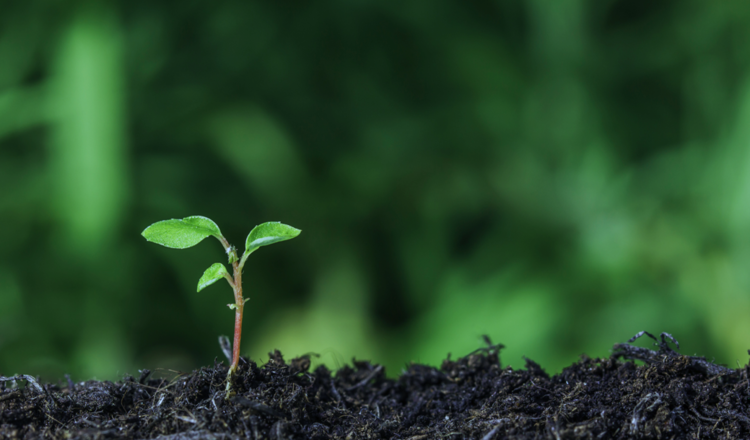The very best way to predict the future is to invent it...
Here at ARID AGRITEC we work hand-in-hand with the most forward thinking international growers, crop scientists, photobiologists and chemists which means we’re always innovating.
Our global headquarters is located at the University of Lancaster (UK) a top ten university where we work closely with the worlds leading scientists dedicated to bringing about a revolution in horticulture. Work carried out with our partners there over the last two decades has helped shape our current range of products and of course we’re already busy designing our next generation products which, we honestly believe, will help change protected cropping forever.
We also work very closely with over 20 universities in the USA, Australia and New Zealand focused on helping us test our products so we’re always light years ahead of the competition.
You should expect to start seeing these truly amazing next generation products soon. In the meantime we’d like to share with you something of the scale of the work already underway.
PESTICIDES BREAK DOWN AT DIFFERENT SPEEDS UNDER PROTECTION. WE'RE AIMING TO TAKE THE UNCERTAINTY OUT OF RESIDUE MANAGEMENT.
Modern industrial pesticides have allowed us significantly improve global crop yields and feed a growing global population. However, recent studies have pointed to these compounds causing long-term health and environmental problems.
It's not widely appreciated that growing under cover can cause changes in the speed at which pesticides breakdown and so make residue management in horticulture problematic. That's why we've been working with Lancaster University on developing a tool for better predicting breakdown rates which takes into account our customers location and time of year they are growing which effects light levels, the pesticide product they are using and the type of crop cover they have.
It's taken five years and field trips around the world to develop this unique tool but we share our expertise with all of our customers as we work together to better manage residues in the supply chain.
IS IT POSSIBLE TO DESIGN A NEXT GENERATION CROP COVER THAT PASSIVELY CONTROLS PESTS & DISEASES WITHOUT PESTICIDES? WE THINK IT IS.
For the past 15 years we’ve been working very hard to understand if its possible to exploit the clever use of light to reduce or even completely negate the need for pesticides in global protected cropping. We wanted to design just the right light recipe to blind insect pests and prevent disease pathogens from sporulating inside the greenhouse. It took some time but we finally hit upon just the right light recipe to achieve this. But that’s not the end of the story. We now need to develop new chemistry to bring this technology to growers around the world. INNOVATE UK were so impressed with our idea that they funded a £1m project to help us turn this idea into reality.
CAN WE MANIPULATE CROP TEMPERATURE MORE PRECISELY WITH A NEXT-GENERATION CROP COVER FOR A MORE SUSTAINABLE FUTURE? WE'RE WORKING ON IT.
Our Managing Director Dr Wagdy Sobeih has always been fascinated with water usage in crop production. Well he does originate from Egypt where water is a precious resource. He therefore set a challenge for us to develop a light recipe that could maintain crop yields (even improve them), maximise quality but trick the crop into using less water. We refer to it a ‘more crop per drop’ and it was one of the most challenging projects we’ve ever undertaken. Saying that the UK’s BBSRC wanted to see us succeed so they funded a project in partnership with Lancaster University to help us bring Wagdy’s dream to market. Later this year we’ll be testing our ideas on a commercial scale in Turkey and are hoping to have some great news to share with the global horticultural industry shortly afterwards.
BY COMBINING THE POWER OF LIGHT AND HARNESSING A CROPS OWN IMMUNE SYSTEM WE THINK WE CAN MAKE 21ST CENTURY HORTICULTURE MUCH MORE SUSTAINABLE.
Did you know that all crop plants have their own version of an immune system that not only helps them fight off attack from pests and diseases but also makes them much more resistant to the types of challenges crops face every day; stresses such as unusually high and low temperatures but also water and salt stress. As the climate changes our crops are going to increasingly face these challenges and so we need to find ways of arming our crops immune systems to make them much more resilient. We’ve been working on a two-pronged approach to this problem. One the one hand we are developing crop covers products that act to reduce these stresses and on the other we are exploiting a clever trick developed by our Research Director to essentially genetically immunise crops against these challenges using a simple/ low cost and sustainable seed treatment. We’re still in the early stages of the project but we have the UK’s BBSRC’s support to develop and test our technologies to help protect our common food security in a fast-changing climate.













